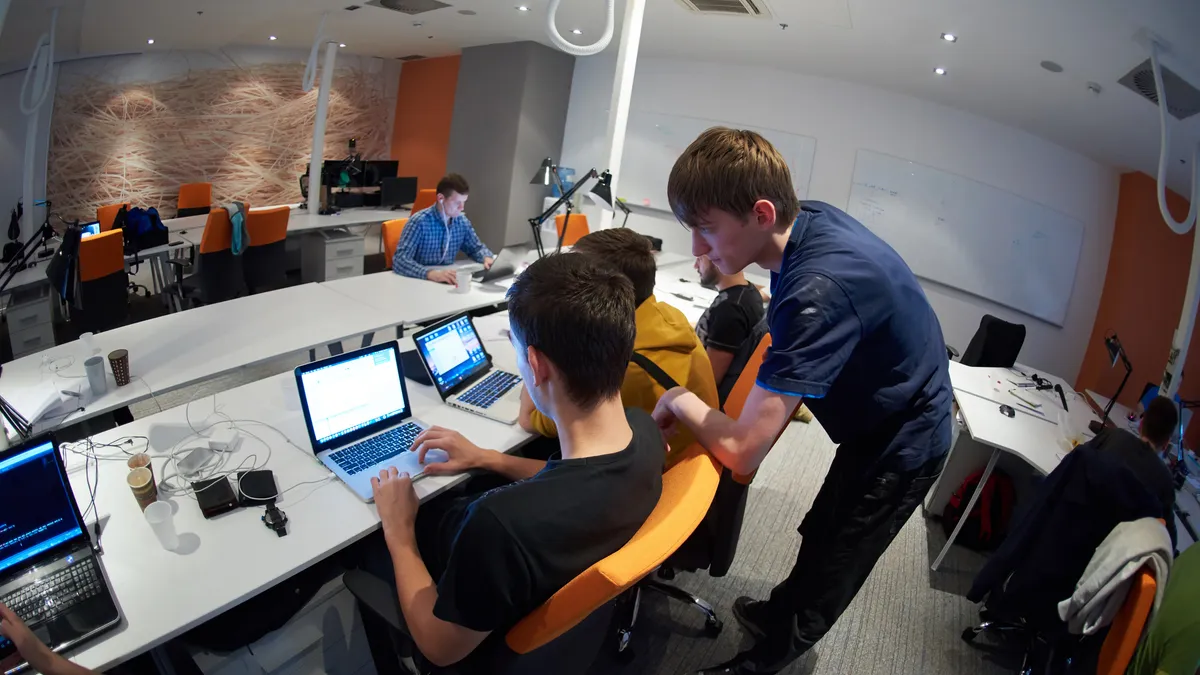Dive Brief:
- A CompTIA research report found that the skills gaps employers are grappling with affect all workplace disciplines and are more complex than most think.
- Although IT and cybersecurity are feeling the brunt of the skills gap, marketing (86%), sales/business development (83%), operations (82%), customer service (74%) and accounting/finance (73%) all are too, according to the study.
- A closer look into the IT skills gap showed that 80% of IT and business executives are at least somewhat concerned with the problem in their organization and 25% are very concerned.
Dive Insight:
The skills gap is a more widespread issue than most may first think, as the positions left open require a certain level of interpersonal skill and problem-solving prowess that is not easy to teach. However, a lack of IT professionals can lead to serious business risk down the line. Spoofing, hacking and other breaches continue to spread as cyber crooks find more ways to steal information and disrupt operations while businesses are left without enough experts to secure their systems.
The cybersecurity workforce gap is predicted to reach 1.8 million by 2022, a 20% increase from 2015, according to a Frost & Sullivan report for the Center for Cyber Safety and Education. Among the 19,000 cybersecurity professionals in the study, two-thirds said there aren't enough specialists to handle today's threats.
A widespread cyber attack hit Europe yesterday and spread across the globe yesterday. The attack followed the WannaCry ransomware attack, which affected more than 300,000 computers in May. Cyber thieves are attacking HR departments through email files for access to the mass of personal and financial data they oversee. With attacks expected to continue, HR must lead their organizations' efforts to train employees in how to protect data and secure systems.












